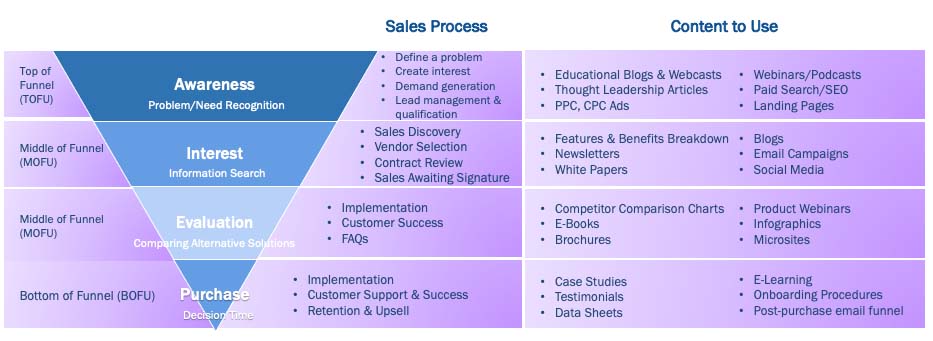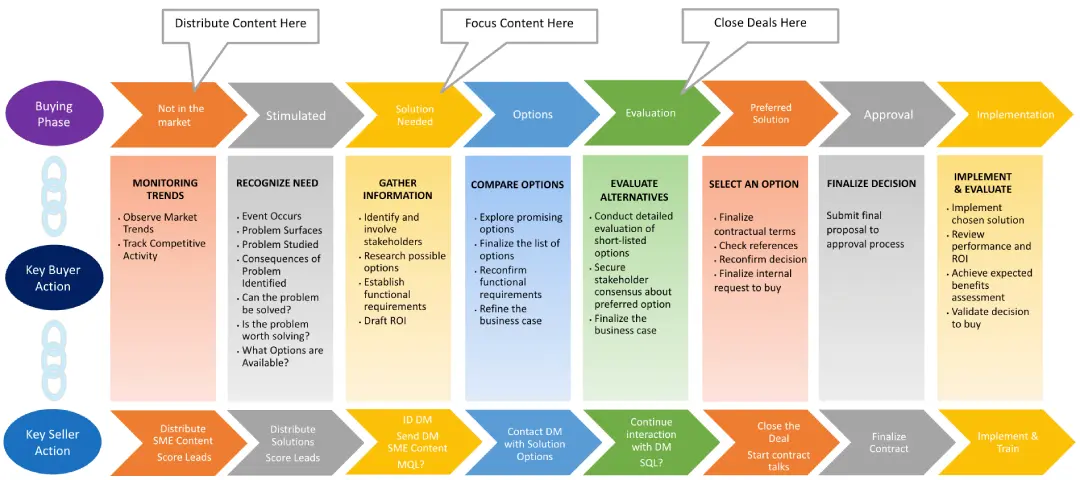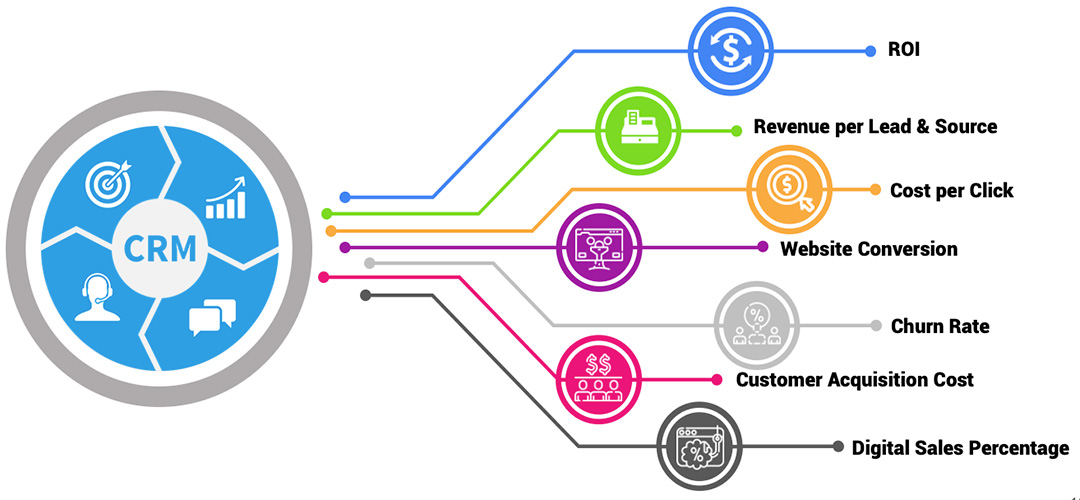Unlocking the Power of Lead Generation: Strategies for Maximizing Your Sales Pipeline
Over time, mastering lead generation can profoundly impact your business’s success. By implementing effective strategies, you can maximize your sales pipeline and turn potential customers into loyal clients. In this guide, you’ll discover actionable insights tailored for small business owners looking to enhance their lead generation efforts and boost growth. Explore efficient Lead Generation Strategies that will help you reach your business goals with confidence.Understanding Sales Leads
The world of B2B business hinges on the concept of sales leads. Without a steady stream of these potential customers, your sales pipeline may quickly run dry. Sales leads represent individuals or organizations that have expressed interest in the products or services you offer, making them invaluable assets for your business growth strategy. By identifying and nurturing these leads, you not only create opportunities for sales but also build relationships that can lead to repeat business and increased brand loyalty. In the competitive landscape of B2B, knowing how to effectively define and manage your sales leads is not just beneficial—it’s important for your overall success.Defining Sales Leads in B2B Context
Around the B2B landscape, sales leads can originate from various channels, making it vital for you to understand their different types and sources. These leads might come through direct inquiries on your website, referrals from existing clients, or engagement with content marketing efforts that establish your credibility in the industry. Each of these channels has its own set of characteristics and quality levels, so recognizing how they fit into your overall lead generation strategy is key. By defining these leads precisely, you can segment them appropriately, prioritizing those most likely to convert into loyal customers.Moreover, it’s important to differentiate between the types of sales leads: marketing-qualified leads (MQLs) and sales-qualified leads (SQLs). MQLs are individuals who have engaged with your marketing efforts, such as signing up for a newsletter or downloading a white paper. These leads show interest but may not yet be ready to make a purchasing decision. On the other hand, SQLs are further down the sales funnel—often having considered your offerings and showing intent to buy. As you develop your understanding of these types, you can tailor your communication and follow-up strategies, ensuring that you address each lead with the appropriate level of urgency and relevance.
As you probe deeper into your lead management strategy, it’s vital to use data analytics to refine your definition of sales leads continuously. Regularly reviewing your lead sources and outcomes allows you to adapt your lead generation efforts. By recognizing patterns in your most successful leads, you can focus your resources on channels that yield higher conversion rates, ultimately enhancing your business growth.

The Importance of Sales Leads for Growth
Alongside the diverse definitions of sales leads, their impact on your business growth cannot be overstated. Sales leads provide you with the potential to transform interest into actionable sales, which directly influences your revenue. Engaging leads effectively can lead to higher conversion rates, increased sales velocity, and an overall reinforcement of your brand’s presence in the market. A consistent approach to lead generation ensures that you have a steady flow of prospects, allowing your business to thrive even in competitive environments.
Additionally, cultivating sales leads empowers you to build meaningful relationships within your target market. Each interaction you have with a lead is an opportunity to demonstrate value, address pain points, and showcase your expertise. When you effectively engage your leads, you create a community of loyal customers who not only return for more but also refer others to your business. Hence, investing in your sales lead strategy today sets the foundation for sustained growth in the future.
Plus, with the right strategies in place, generating leads can become a predictable and scalable aspect of your business operations. By focusing on quality over quantity, you can ensure that the leads you pursue are aligned with your business goals. This approach allows for smarter resource allocation, enabling you to dedicate more attention to nurturing high-potential leads. As a result, you can expect to see a direct correlation between your lead generation efforts and your overall business success.
Strategies for Generating Quality Leads
You have a primary goal as a small business owner: to fill your sales pipeline with quality leads. This task, while challenging, is achievable by leveraging various strategies designed to attract and engage your target audience effectively. By focusing on generating quality leads, you can ensure that your sales team spends time nurturing relationships with prospects that have a genuine interest in your products or services. Implementing these techniques will enhance your ability to convert leads into loyal customers while maximizing your return on investment. Explore Unlocking the Power of Lead Generation: Strategies, Roles … to discover more about effective lead generation strategies tailored for your business.
Leveraging Digital Marketing
Below, we examine into the world of digital marketing as a powerful avenue for lead generation. The beauty of digital marketing lies in its ability to reach a broad audience while allowing precise targeting of your ideal customer profile. Utilizing tools such as Google Ads and search engine optimization (SEO) enables you to improve your visibility online. Investing in well-crafted content that includes relevant keywords can significantly enhance your ranking on search engines, making it easier for potential leads to discover your business. Furthermore, by analyzing traffic data and user behavior, you can refine your campaigns continuously, ensuring that your marketing efforts remain aligned with your audience’s preferences.
Moreover, adopting a multi-channel approach in your digital marketing strategy can further enhance your lead generation efforts. Consider creating landing pages optimized for lead capture, offering value through lead magnets such as eBooks or webinars. Email marketing is also an effective tool to follow up with leads who have interacting with your content, nurturing them with insights that build credibility and trust over time. By measuring the performance of your digital campaigns through metrics like conversion rates and click-through rates, you can derive actionable insights that play a role in shaping your tactics going forward.

Photo by rawpixel.com
Utilizing Social Media and Content Marketing
Social media has transformed how businesses connect with their audience, providing a direct channel for communication and engagement. Social media platforms like LinkedIn, Twitter, and Facebook allow you to engage with your target market, share valuable content, and promote your products or services. It’s necessary to focus on creating a strategy that encourages interaction and builds community around your brand. Sharing informative articles, case studies, and customer success stories can position you as an authority in your industry, attracting potential leads who seek reliable solutions to their problems.
Due to the rapid expansion of content marketing as a tool for lead generation, integrating compelling content with your social media strategy can yield outstanding results. You can create valuable resources such as blog posts, infographics, and videos that not only capture attention but also encourage social sharing. Each piece of content should be aimed at addressing the pain points of your audience, driving them to seek more information about what you offer. The combination of social media engagement and content marketing can significantly boost your visibility, allowing potential leads to find your business organically as they search for solutions in your industry.
Optimizing Lead Conversion Processes
There’s a significant opportunity in optimizing your lead conversion processes. Small businesses often find themselves grappling with how to effectively transition leads into paying customers. Understanding this journey, known as the sales funnel, can drastically improve your conversion rates and ultimately bolster your sales pipeline. For an in-depth look at enhancing your lead management practices, you can read more about Unlocking the Power of Lead Generation: Strategies for Business Success. By grasping the nuances of the sales funnel, you can tailor your approaches to meet potential customers at every stage of their decision-making process, ensuring that you are not losing leads who may otherwise convert with the right guidance.
Understanding the Sales Funnel
On your journey to optimize lead conversion, it’s vital to fully understand the sales funnel and its various stages. The sales funnel illustrates the path your leads take—from the moment they become aware of your business to the point of purchase. Typically, this funnel encompasses several stages: awareness, interest, consideration, intent, and finally, purchase. If you comprehend where your leads stand within this funnel, you can craft strategies tailored to convert them effectively. For instance, leads at the awareness stage require educational content to establish interest, while those further down the funnel may benefit from a free trial or a detailed product demonstration.
On top of this, an effective understanding of the sales funnel allows you to align your marketing and sales strategies with the expectations and behavior of your prospects. Minimizing friction at each stage by ensuring smooth transitions will significantly increase your conversion rates. For example, if potential customers express interest but fail to proceed to a purchase, analyzing this bottleneck can provide actionable insights into what adjustments may be necessary—be it altering your offer or refining your follow-up process. By adopting a funnel-focused mindset, you enrich the customer experience, addressing concerns and questions proactively to guide them toward making a decision.
On a side note, understanding common pitfalls in the sales funnel is equally important. Many businesses underestimate the importance of nurturing leads who are in the consideration phase. If you find that leads have dropped off at this stage, it may indicate a lack of personalized communication or insufficient follow-up efforts. Engage your leads with tailored content and follow-ups that cater to their specific needs, enhancing the likelihood that they will progress to the purchase stage.
Techniques for Improving Conversion Rates
On the path to boosting your conversion rates, implementing targeted and effective techniques will play a pivotal role. One key strategy is to regularly assess your conversion funnel metrics, such as your overall conversion rate and the drop-off rates at each funnel stage. This data will allow you to pinpoint weaknesses and refocus your efforts where they are needed most. Enhancing your follow-up communication, for example, through personalized emails acknowledging a lead’s specific interests, can foster engagement and bring leads back into the fold.
On top of refining your follow-up tactics, integrating advanced tools like Customer Relationship Management (CRM) systems can significantly streamline your conversion processes. These systems not only help in tracking interactions with your leads but can automate responses, thus ensuring you maintain consistent communication without sacrificing personalization. Moreover, employing A/B testing on landing pages, calls to action, and email subject lines can reveal what resonates best with your leads and optimize your chances of conversion accordingly.
In addition, leveraging data analytics can yield insights into lead behavior, helping you to not only optimize your messaging but anticipate objections before they arise. For instance, if analytics show that a particular segment frequently engages with pricing information, you can proactively address their queries by including compelling pricing details early in the follow-up stage. By applying these tailored techniques, you enhance your ability to convert leads, ultimately maximizing the potential of your sales pipeline and fostering sustainable growth for your business.
Nurturing and Retaining Sales Leads
Once again, the significance of nurturing and retaining sales leads cannot be overstated in the competitive landscape of B2B businesses. Your leads are often at a crucial stage in their buyer’s journey, and if not managed carefully, they may lose interest or choose your competitor. Nurturing involves ongoing engagement with your leads to strengthen your relationship, address their concerns, and refine their interests. The ultimate goal is to guide them toward making a purchase decision and to create lasting relationships that can result in repeat business and referrals. This process not only fosters loyalty but also enhances your reputation as a trusted provider.
Building Strong Customer Relationships
The foundation of successful lead nurturing lies in the relationships you build with your leads. Fostering strong customer relationships (read my article about Customer Connections) starts with effective communication and understanding your leads’ needs and pain points. It’s imperative to treat your leads not as mere numbers but as valuable individuals or organizations that require personalized attention and tailored solutions. Establish trust by being transparent in your interactions; this could involve providing insights, answering questions, or addressing concerns promptly. By demonstrating genuine interest in their success, you can create an environment where leads feel valued and appreciated.
Moreover, consider implementing regular touchpoints throughout the lead nurturing process. This could include periodic check-ins via email or phone calls, providing them with relevant industry insights and content, or inviting them to webinars that align with their interests. Each interaction serves as an opportunity to showcase your expertise and reinforce your commitment to their growth. When leads perceive that you are invested in their journey, they are more likely to engage further and move toward conversion, leading to positive business outcomes for both parties.
Additionally, leveraging testimonials and case studies can significantly enhance your lead nurturing efforts. By showcasing how your products or services have benefited similar clients, you build credibility and social proof, further reinforcing the value you can provide. This approach not only nurtures leads into becoming customers but can also transform them into advocates for your brand in the long run.
Personalization in Lead Nurturing
Before you can effectively nurture your sales leads, you need to appreciate the importance of personalization in the process. Tailoring your communications and presentations to meet the specific needs and preferences of your leads significantly enhances engagement. In an era where customers expect brands to understand their unique challenges, personalization is no longer optional but a critical aspect of your lead nurturing strategy. You can significantly boost your conversion rates by leveraging insights from your lead’s previous interactions and behaviors to create customized experiences that resonate with them. This will certainly inspire confidence and foster a deeper connection between your brand and your leads.
Moreover, personalization goes beyond simply addressing your leads by name. It involves segmenting your leads based on various factors such as industry, interests, or stage in the sales funnel. By doing so, you can craft highly relevant content and messaging that speaks directly to their pain points and aspirations. For instance, if you notice that a particular segment of your leads is struggling with compliance issues, sharing relevant resources or insights on that specific topic can showcase your expertise while simultaneously nurturing their interest. This tailored approach allows leads to feel heard and understood, which ultimately strengthens their relationship with your brand.
For instance, employing marketing automation tools can help you track lead behavior and interactions effectively. By analyzing engagement patterns, you can refine your messaging and deliver timely and relevant content that aligns with their interests. Whether it’s sending personalized follow-up emails or providing exclusive access to webinars based on their preferences, these small adjustments can lead to a significant improvement in lead engagement and retention rates. In doing so, you not only nurture your leads more effectively but also position your business as their go-to resource, establishing a strong competitive advantage in the marketplace.
Analyzing Lead Performance
Now that you have generated leads, it’s necessary to shift your focus towards analyzing their performance. Understanding how these leads are performing allows you to make informed decisions that can enhance your sales strategies and overall business growth. To maximize your sales pipeline, you’ll want to continuously assess the effectiveness of your lead generation efforts. By applying systematic evaluation, you can identify patterns, refine your approach, and ultimately improve conversion rates. This analytic process helps you not only to track the leads you have amassed but also to explore what types of leads are more likely to convert, thereby optimizing your sales funnel.
Key Metrics to Track
To effectively analyze lead performance, there are several key metrics that you should be tracking. One of the most crucial metrics is the conversion rate, which measures the percentage of leads that turn into paying customers. By understanding this figure, you can gauge the effectiveness of your lead generation tactics and the quality of the leads generated. Furthermore, it’s beneficial to examine your customer acquisition cost (CAC); this metric tells you how much you’re spending to acquire a single customer through your lead generation efforts. A lower CAC indicates a more efficient lead generation strategy, allowing you to allocate resources effectively.
Another important metric to monitor is the lead source effectiveness. By categorizing and analyzing which channels (e.g., social media, email campaigns, or content marketing) generate the highest quality leads, you can refine your marketing focus and invest more in the avenues that yield the best results. Additionally, look into the lifetime value (LTV) of your customers acquired through different lead channels. This insight will help you understand the long-term profitability of various lead sources, guiding your strategic decisions. High LTV in a specific lead source indicates a sustainable channel worth nurturing for ongoing lead generation.
Lastly, tracking engagement metrics will provide insight into how leads are interacting with your marketing materials. Metrics such as open rates, click-through rates, and website behavior can reveal how well your content resonates with potential customers. By using these insights, you can optimize your messaging and content to create a more streamlined path towards conversion, ensuring you’re addressing the specific needs and interests of your target audience.
Utilizing Data Analytics
Any analysis that contributes to increasing your lead generation efficiency is a worthwhile investment in your business. Data analytics offers invaluable insights that can influence your lead generation tactics and overall strategies. By tapping into analytical tools, you can decode what works and what doesn’t within your sales pipeline. For instance, you can utilize analytics to track seasonality in customer behaviors or shifts in market demand. This can help you tailor your lead generation campaigns to reflect these fluctuations and remain relevant. Consistently analyzing data not only enhances the quality of your leads but can also elevate your marketing campaigns, ensuring you’re reaching the right audience at the right time.
Due to advancements in data analytics technologies, small business owners now have access to comprehensive tools that were once limited to larger corporations. With platforms designed for lead tracking, social media engagement analysis, and customer feedback aggregation, you can access a treasure trove of information regarding your target market. By effectively using data analytics, you can anticipate trends, tailor your lead generation strategies, and refine content marketing efforts. This data-driven approach positions your business to adapt quickly to changes in buyer behavior, ultimately improving lead quality and enhancing your sales outcomes.
Innovative Tools for Lead Management
Keep in mind that utilizing innovative tools for lead management can greatly enhance your efficiency and effectiveness in driving sales. As a small business owner, you want to ensure that your lead generation strategies are not only effective but also sustainable over the long term. Leveraging technology such as Customer Relationship Management (CRM) systems and marketing automation tools can streamline your processes significantly. These tools allow you to centralize your customer information, streamline communication, and automate various tasks, freeing up valuable time that you can use to focus on building relationships and closing sales. By adopting these technologies, you create a more organized approach that leads to better tracking and nurturing of leads.
CRM and Marketing Automation Tools
Below, you’ll find that CRM systems empower you to manage your sales leads more effectively. They help categorize leads based on their behaviors and interactions with your business, making it easier to identify the most promising opportunities. For instance, a well-implemented CRM can assist you in tracking communication history, scheduling follow-ups, and segmenting your leads based on specific criteria. This level of organization ensures that no lead falls through the cracks and that you can maintain personalized communication tailored to each potential customer’s needs and preferences.
In addition to CRM systems, marketing automation tools play a significant role in optimizing your lead generation efforts. These tools enable you to automate email marketing campaigns, social media posts, and other outreach efforts while providing analytics that measure their success. With the ability to schedule and personalize your communications, you can enhance your engagement with leads. Statistics indicate that businesses using marketing automation see a 451% increase in qualified leads, highlighting the effectiveness of these tools in nurturing prospects and encouraging conversion.
The Role of AI in Lead Generation
An incredible opportunity lies in the integration of Artificial Intelligence (AI) into your lead generation process. AI technology brings advanced analytics and machine learning capabilities to the table, allowing you to sift through massive amounts of data and pinpoint potential leads more accurately. By utilizing AI tools, you can better understand customer behaviors and preferences, which enables you to tailor your sales efforts and marketing campaigns effectively. AI-driven chatbots can engage with visitors on your website in real-time, answering their queries and qualifying leads before passing them on to your sales team, significantly enhancing your lead management process.
Consequently, the inclusion of AI in your lead generation strategy can transform the way you identify and engage with potential customers. With capabilities like predictive analytics, AI can forecast which leads are most likely to convert, allowing you to focus your resources where they’ll be most effective. Moreover, by automating repetitive tasks and generating insights into your leads’ preferences and behaviors, AI frees you to devote more time to strategic planning and relationship building. Embracing these innovations not only boosts your lead generation efficiency but also positions your business to flourish in a competitive landscape.
Conclusion
Taking this into account, you have the opportunity to unlock the full potential of lead generation by implementing effective strategies tailored to your business needs. It’s vital to recognize that the sales pipeline plays a significant role in your business growth, and understanding how to fill it with high-quality leads can transform your overall success. As a small business owner, you have the freedom to experiment with various techniques—be it leveraging digital marketing, utilizing social media platforms, or creating compelling content—each designed to attract prospective customers and drive engagement. A proactive approach to lead generation allows you to build a solid foundation for not just acquiring new clients but also nurturing lasting relationships.
Furthermore, optimizing your lead conversion process is another vital piece of the puzzle that you shouldn’t underestimate. By having a clear understanding of the sales funnel and adopting specific techniques to enhance your conversion rates, you can efficiently turn prospects into loyal customers. Implementing a robust Customer Relationship Management (CRM) system can streamline your operations, enabling you to track and manage your leads effectively. Each stage of the funnel offers unique opportunities for engagement, where you can fine-tune your strategies to cater to user needs and preferences, ensuring that you maximize your investment in lead generation.
Ultimately, the power of lead generation lies in your ability to adapt and evolve as market dynamics shift. By consistently analyzing your performance metrics and making data-driven adjustments, you can refine your strategies over time and stay ahead of the competition. This ongoing commitment to lead generation not only enhances your sales pipeline but positions you as a responsive and customer-centric business in your industry. Investing time and resources into mastering lead generation will yield long-term benefits, equipping you with the tools and insights needed to thrive in a competitive landscape and achieve your business aspirations.
Get in Touch
Contact me today for a FREE consultation to learn more about how easy it is it to implement cost-effective AI marketing tools for your small business. Not only will you get some free tips and tricks, we can discuss how I can help grow your business for pennies on the dollar compaired to other services. Using AI marketing, I’ve TRIPLED my small consultation business in the last 9 months – I can help you grow too. I understand small business because I am a small business.



